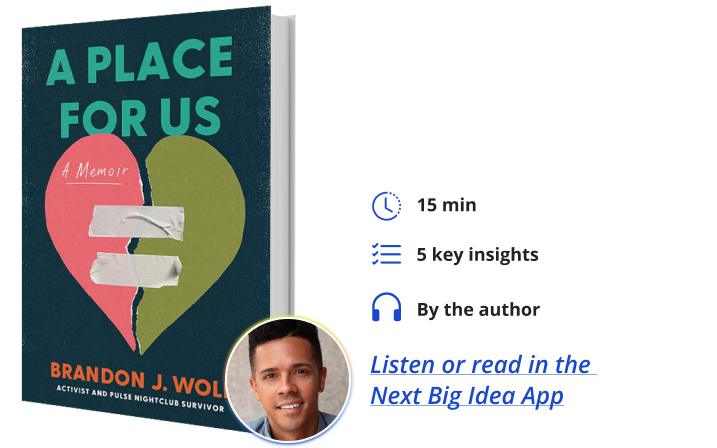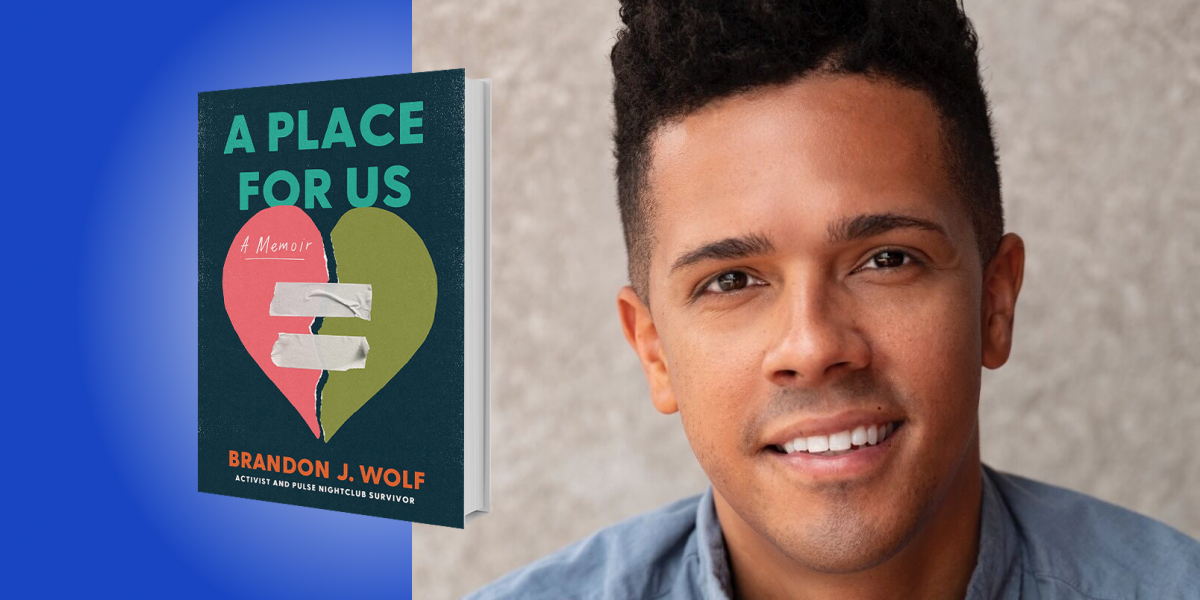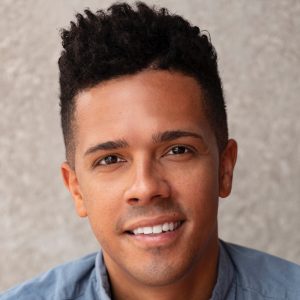Brandon Wolf is a survivor of the Pulse nightclub shooting of 2016—a terror attack in Orlando, Florida, against the LGBTQ+ community. He is a nationally recognized public speaker and fierce activist for civil rights and gun-safety reforms. Wolf is the press secretary at Equality Florida, a civil rights nonprofit with the mission of advancing equality for the state’s LGBTQ+ community.
Below, Brandon shares five key insights from his new book, A Place for Us: A Memoir. Listen to the audio version—read by Brandon himself—in the Next Big Idea App.

1. Intersectionality isn’t just a buzzword.
With the concept of identity dominating the current political discourse, so many words designed to help us describe our existence have been hijacked and reduced to Twitter fodder. The unique lenses through which we see the world are boiled down to talking points and funneled into political ads and fundraising emails.
Intersectionality is among them. This term, coined by scholar Kimberlé Crenshaw, describes the complex relationship between overlapping identities and the discrimination and privilege those identities precipitate. It has also become a political lightning rod, misconstrued as a tool to convince certain people that they were born victims and are powerless over their fates. But intersectionality isn’t just a buzzword. It’s not some sanitary academic theory either. Intersectionality describes the very real experience of standing in the crosswalk where multiple identities meet, frantically dodging the cars speeding by.
For me, intersectionality was being called the N word while strolling down the sidewalk and being afraid the guy hurling it might beat me up for being gay too. Intersectionality was trying but failing to be a social chameleon, fighting desperately to be Black enough for some spaces, white enough for others, and masculine enough to escape any space unscathed. Intersectionality is reality for so many people. The faster we learn to celebrate the power of intersectional lived experiences, the more likely we are to build a future that has room for everyone.
2. You don’t have to save the world to earn your place in it.
Growing up feeling out of place and struggling to find somewhere to belong, I did all the things I thought would help me assimilate. I got good grades. Joined every school club imaginable. Ran for student body office. Held down a part-time job. I suppose I thought that if I was just exceptional enough, those around me would forgive me when I was finally honest about who I was. After the Pulse nightclub shooting, that same natural desire to prove that I belong on Earth crept back. I poured myself into work, grinding my mental health down to frayed ends—as if life itself was an act of penance.
“You are worth more than simply what you can produce.”
The desire to prove ourselves is hardwired, especially for those whom society has historically told to work twice as hard for half as much. But the truth is that you don’t have to save the world to earn your place in it. You are worth more than simply what you can produce. Yes, your work matters. Your passion matters. Your contributions matter. But so does your joy. Your rest. Your peace. Don’t feel as though you have to lug the weight of the world on your shoulders and solve each crisis single-handedly in order to earn a place on Earth. You already belong here.
3. Forgiveness isn’t agreeing to absolve wrongdoing, it’s an act of unconditional love.
I’ve always been one to hold grudges for far too long. I held a grudge against my dad for decades. Our relationship was strained while I was growing up—to put it nicely. He didn’t understand me and I didn’t understand him. He had trouble communicating his emotions and would often lash out irrationally. His words often stung during dinner table conversations and his silence after I came out cut deep. But in the wake of the Pulse nightclub shooting, I forgave him. I think he forgave me too. Not as an act of amnesia, shoving the hurt of the past into a mental waste bin. But as an act of love—an offer of grace. I didn’t know how many more birthday cards I would get from him or late-night phone calls. I couldn’t bear to waste another moment carrying the baggage of decades past.
Forgiveness is a powerful tool and a necessary step in healing. When we lose someone we cared about, we have to forgive ourselves for waking up each day knowing that they will never have that chance again. We have to learn to forgive one another, and not just when it’s easy. Not as an agreement to absolve each other of the harm we’ve caused, but as an act of unconditional love. An offer to build a different kind of tomorrow together.
4. Dare to love with abandon.
Love is such a journey. As children, we love recklessly, pouring our whole hearts into anything and everything. But, day by day, year by year, our love becomes more wary. We lose a puppy and the sting of grief makes us pull back a little. Our playground crush doesn’t feel the same way and the pain of rejection hardens our hearts just a touch. I loved my mother recklessly, and when she passed away when I was 12, it was as if my capacity for love itself was suddenly muted. That loss reshaped every relationship that followed. I dated hesitantly, made friends with caution—always afraid that one day, they might be gone.
“Goodbyes never get any easier.”
But my best friend Drew taught me to use that muscle again, to love unconditionally and courageously. There’s simply nothing like it. Humans are not immortal. Relationships end. Goodbyes never get any easier. But if we spend every moment with emotional walls raised high, petrified of what lurks on the next calendar page, we’ll miss everything. The uncontrolled laughter. The smiles until our cheeks hurt. The profound, soul-altering joy of connection. Nothing is forever. Dare to love with abandon while we’re here.
5. Community will save our lives.
There is a pervasive culture of rugged individualism in America. “Pull yourself up by the bootstraps!” they’ll shout, as if every obstacle in life is designed as an individual event at a track meet. But that’s not how our species got to the top of the food chain. We worked together. Created language. Passed on knowledge. Solved problems hand-in-hand. Humankind has not progressed this far by forging a million individual paths through a tangled jungle. We did it by walking the path collectively.
We would do well to remember that truth now when the temptation to pull society apart at the seams is high. We have to recommit to stitching our futures together. If we choose division and rancor, we’ll fail. If we choose chaos and mistrust, we’ll fall apart. Perhaps the most important lesson I learned in the wake of the Pulse tragedy was that we can’t get through these things alone. We have to stand, arms locked, shoulder to shoulder. I’ve always said that community has saved my life more than once. I think it’s what we need now too. Life isn’t an individual activity – it’s a team sport. We’re all in this thing together.
To listen to the audio version read by author Brandon J. Wolf, download the Next Big Idea App today:































